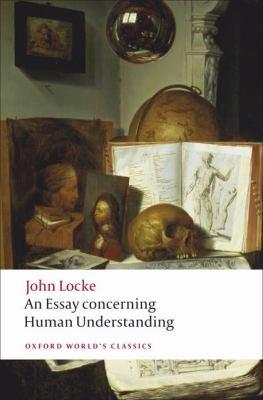
An essay concerning human understanding
John Locke sets out his theory of knowledge and how we acquire it. Eschewing doctrines of innate principles and ideas, Locke shows how all our ideas, even the most abstract and complex, are grounded in human experience and attained by sensation of external things or reflection upon our own mental activities. A thorough examination of the communication of ideas through language and the conventions of taking words as signs of ideas paves the way for his penetrating critique of the limitations of ideas and the extent of our knowledge of ourselves, the world, God, and morals.
Available Copies by Location
| Location | |
|---|---|
| Community Centre | Available |
Browse Related Items
| Subject |
| Knowledge, Theory of. |
- ISBN: 0199296626
- ISBN: 9780199296620
- Physical Description lvi, 520 pages --.
- Publisher Oxford : Oxford University Press, 2008.
Content descriptions
| Bibliography, etc. Note: | Includes bibliographical references (page xliv-li) and index. |
| Formatted Contents Note: |
Series
Additional Information
| LDR | 01907nam a2200349 a 4500 | ||
|---|---|---|---|
| 001 | 256179 | ||
| 003 | NFPL | ||
| 008 | 080521s2008 enk e b 001 0 eng | ||
| 010 | . | ‡a 2008021774 | |
| 020 | . | ‡a0199296626 ‡qpaperback | |
| 020 | . | ‡a9780199296620 ‡qpaperback | |
| 035 | . | ‡a714687 | |
| 040 | . | ‡aDLC ‡beng ‡erda ‡cDLC ‡dBTCTA ‡dBAKER ‡dYDXCP ‡dBWKUK ‡dBWK ‡dDLC | |
| 050 | 0 | 0. | ‡aB1290 ‡b2008 |
| 082 | 0 | 0. | ‡a121 ‡222 |
| 090 | . | ‡a121 Loc | |
| 100 | 1 | . | ‡aLocke, John, ‡d1632-1704. ‡0(DLC)n 79090225 ‡0(NFPL)4978 |
| 245 | 1 | 3. | ‡aAn essay concerning human understanding / ‡cJohn Locke ; abridged with an introduction and notes by Pauline Phemister. -- |
| 264 | 1. | ‡aOxford : ‡bOxford University Press, ‡c2008. | |
| 300 | . | ‡alvi, 520 pages --. | |
| 336 | . | ‡atext ‡btxt ‡2rdacontent | |
| 337 | . | ‡aunmediated ‡bn ‡2rdamedia | |
| 338 | . | ‡avolume ‡bnc ‡2rdacarrier | |
| 490 | 1 | . | ‡aOxford world's classics |
| 504 | . | ‡aIncludes bibliographical references (page xliv-li) and index. | |
| 505 | 0 | . | ‡INtroduction -- Textual note -- Bibliography -- Chronology -- Appendix -- Explanatory notes -- Index. |
| 520 | . | ‡aJohn Locke sets out his theory of knowledge and how we acquire it. Eschewing doctrines of innate principles and ideas, Locke shows how all our ideas, even the most abstract and complex, are grounded in human experience and attained by sensation of external things or reflection upon our own mental activities. A thorough examination of the communication of ideas through language and the conventions of taking words as signs of ideas paves the way for his penetrating critique of the limitations of ideas and the extent of our knowledge of ourselves, the world, God, and morals. | |
| 650 | 0. | ‡aKnowledge, Theory of. ‡0(DLC)sh 85072732 ‡0(NFPL)98756 | |
| 700 | 1 | . | ‡aPhemister, Pauline. ‡0(DLC)no2005080311 ‡0(NFPL)50075 |
| 830 | 0. | ‡aOxford world's classics (Oxford University Press) ‡0(DLC)n 97075954 ‡0(NFPL)127015 | |
| 930 | . | ‡aMARCIVE (082023) | |
| 901 | . | ‡a256179 ‡bAUTOGEN ‡c256179 ‡tbiblio | |

